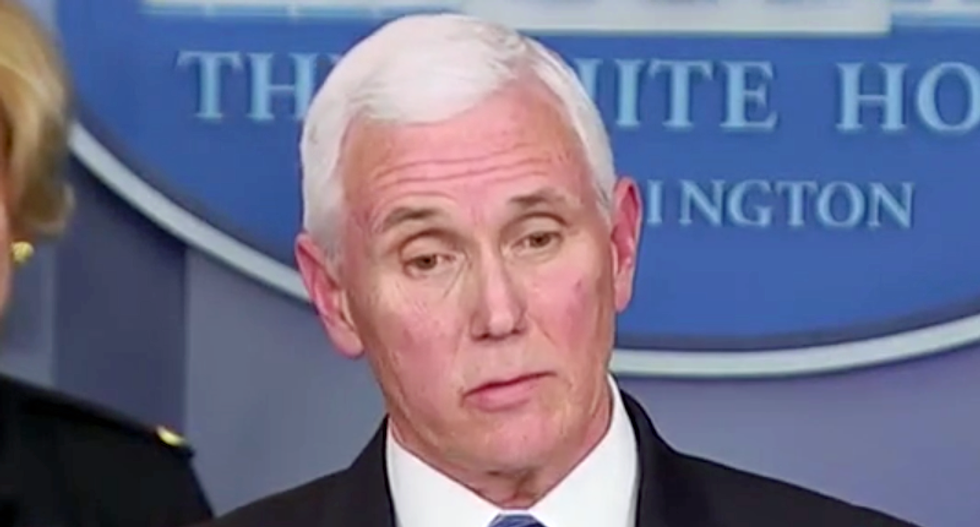
A biologist who has helped coordinate public health responses to global outbreaks warns that Vice President Mike Pence is one of the last officials who should be considered to lead the coronavirus response.
Dr. Lucky Tran -- a scientist who coordinated public communications during previous outbreaks of Ebola, Zika virus and COVID-19 -- published a column in The Guardian blasting Pence's track record on health and science as disqualifying.
"Pence’s public health record is disastrous," Tran writes. "As the governor of Indiana, Pence was responsible for the largest HIV outbreak in state history. He slashed public health spending, triggering the closure of HIV testing sites. Against the advice of scientists, he banned needle exchanges, causing transmissions to spread due to increased needle sharing."
"Pence has also downplayed the link between smoking and cancer," he added.
The biologist recognized that Pence will probably serve more as a spokesman in the administration's response, but he hoped that experienced government scientists and public health specialists would make critical decisions -- and not elected officials and political appointees.
"Pence’s appointment follows a track record of the administration prioritizing politics over scientific expertise," Tran writes. "Trump has appointed fossil fuel lobbyists to lead the EPA, climate deniers to head up NASA and the Council on Environmental Quality, Dow executives to USDA leadership, and a chemical industry insider to run the EPA’s toxic chemicals program. These appointments have eroded public trust and shifted the priorities of these agencies from saving lives to special interests."
He wasn't encouraged by the administration's move to route all coronavirus messaging through Pence's office, because he said the vice president and Trump's political appointees lacked credibility.
"Letting officials speak freely isn’t the root cause of their problems," Tran writes, "it’s that the Trump administration is elevating the wrong representatives, who don’t understand what they’re talking about."
Tran agreed that outbreaks necessarily had a political dimension because they disrupted society and the economy, but he warned that the focus should always remain on public health instead of making leaders appear strong.
"To overcome an epidemic, we need the public to have confidence in our federal agencies," he writes.
"Viruses don’t discriminate between liberals and conservatives," Tran adds. "Dedicated and talented government scientists are working hard to protect us all. We should allow them the freedom to get on with their important jobs."




